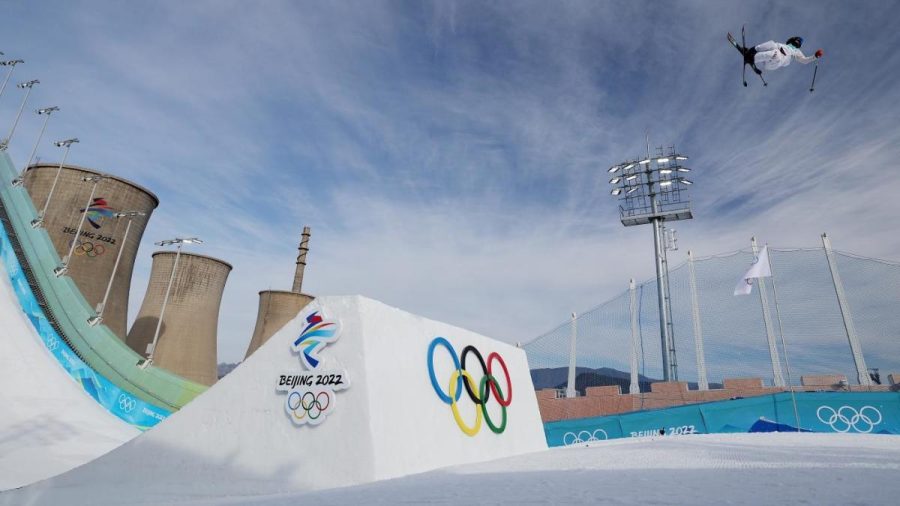Human Rights Issues Cast Shadow At Olympics
Courtesy of Richard Heathcote/Getty Images
Questions surrounding human rights have haunted these Olympics over the past year.
February 23, 2022
The return of the highly anticipated Winter Olympic Games has been cause for an exciting start to 2022. With the top athletes sent to represent their countries in the hopes of bringing home victory, glory and a heightened sense of national pride, what is there not to be excited about?
This year’s games held in Beijing were expected to be no different. However, a recent series of events has raised enough concern for American newscasters to withdraw from announcing less than two weeks before the start of the games.
U.S. broadcasters cited COVID-19 related concerns as the only reason for the late withdrawal. So, while the games were aired on American TVs, broadcasting took place from the NBC facility in Stamford, Connecticut. In fact, the only American newscaster to set foot in China was lead prime time host Mike Tirico, who covered the opening ceremonies of the games before heading to Los Angeles for Super Bowl LVI.
With COVID-19 always at the forefront of people’s minds these days, it made sense that concerns over the severity of cases in China have led to such drastic measures taken by the United States. According to USA Today, the International Olympic Committee barred any sale of international tickets as a result of the “grave and complicated situation of the COVID-19 pandemic,” allowing only spectators living in mainland China who met COVID-19 safety criteria to attend.
However, recent accusations over human rights issues in China begged the question of whether COVID-19 related reasons were the sole cause for the United States’ withdrawal.
Namely, many in the international community have lodged claims against the Chinese government regarding mass abuses of Muslim Uyghurs, Tibetans and other ethnic groups in the country. It has been said that the largest number of people are being held in internment and labor camps since World War II. Additionally, Chinese authorities have eradicated independent civil society and increased technological surveillance in efforts to curb rights to expression, association and assembly. So, was China using the Winter Olympic Games to cover up the mass genocide occurring within its borders?
U.S. athletes in the weeks prior to the games were asked about the human rights issues in China and whether they should and/or plan to use their platforms to speak about them. The International Olympic Committee regulations prevent athletes from publicly expressing their views on these human rights violations, but many athletes, including figure skater Timothy LeDuc, felt an obligation to do so.
“These are horrifying human rights abuses that we’re seeing happening. And it can feel very powerless when you read those things, because you think, ‘What can I do?’” LeDuc said.
LeDuc explained that he saw speaking out against it as the only way he can make a contribution. This difficult question was also met with support from the United States as a whole, which joined the multinational effort to diplomatically boycott the Olympic Games. This means no senior officials were sent for opening and closing ceremonies, and governments were encouraged to release messages of support to human rights activists, which seems a more likely reason for the withdrawal of newscasters from the Games.
Taking this stance against the Chinese government caused an uproar of support and responsibility among people to mark an end to such atrocities. The boycott has sparked significant patriotism in a new way, as U.S. athletes, broadcasters and spectators stood in unison against human rights violations.
Hopefully, this stance, which has shone a bright light on the dire situation in China, will bring justice to those facing entrapment and persecution and a call to end this appalling treatment of human beings.










